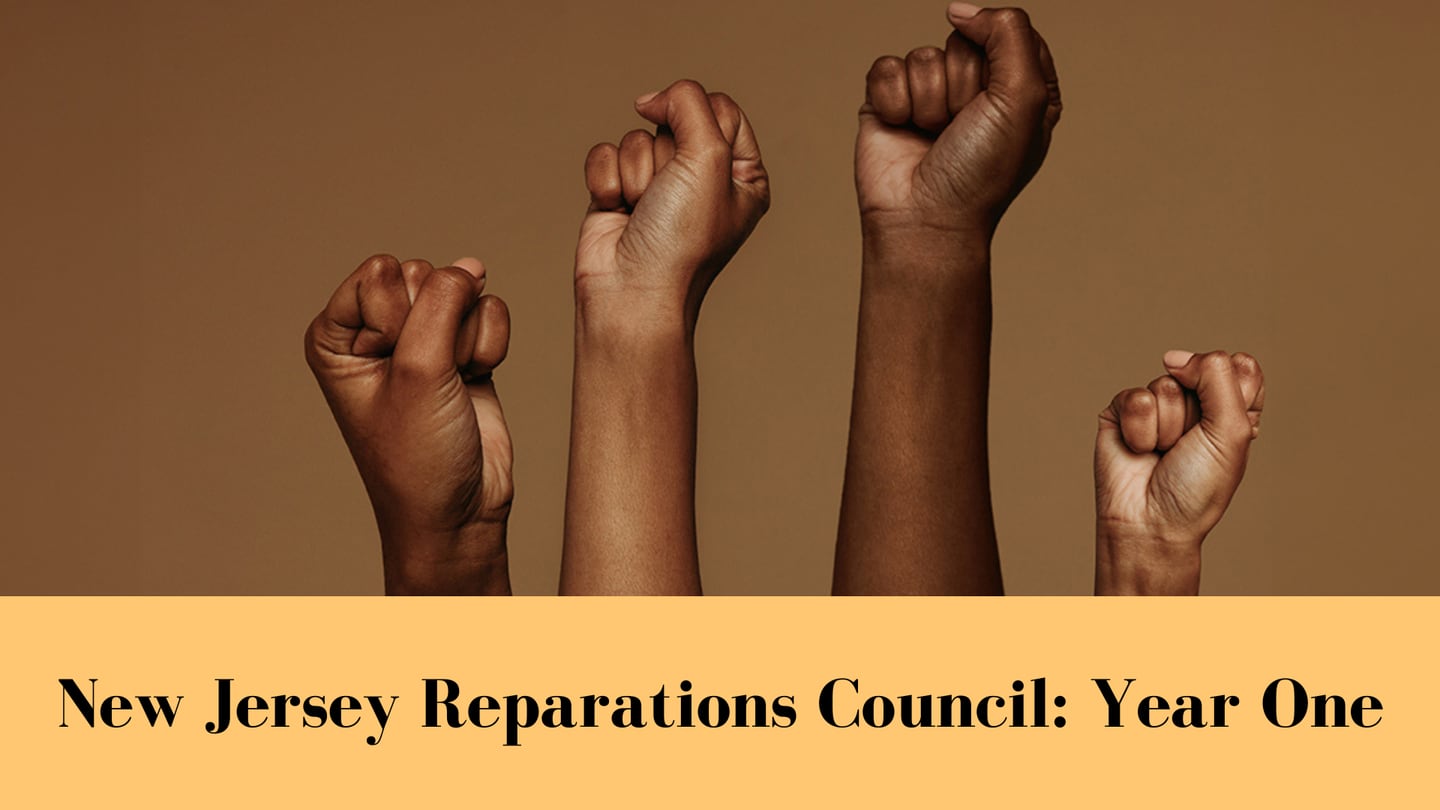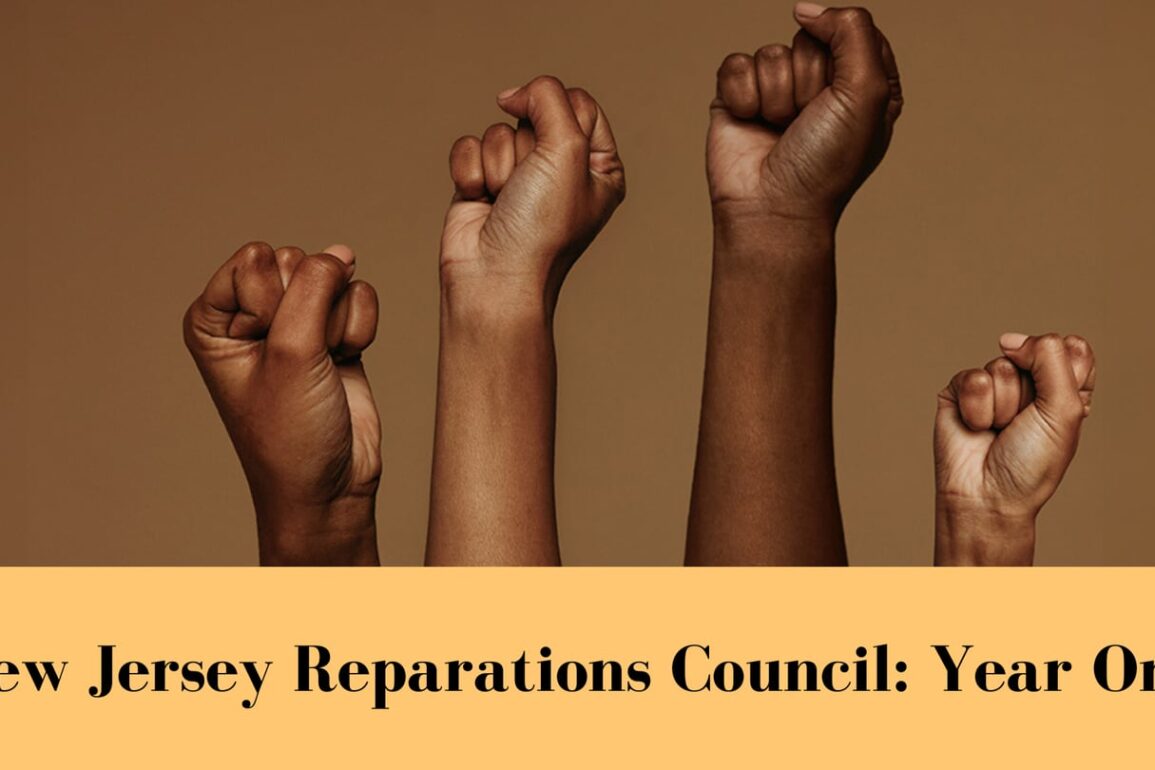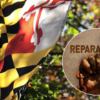
Over the past year, the New Jersey Reparations Council examined the case for reparations in New Jersey. On Juneteenth, they reported disturbing information about the institution of slavery in the state.
One committee’s research found that slavery was at the center of every aspect of New Jersey’s economy across the state, from agricultural work, to clearing land, building roads, loading and unloading ships, mining, and preparing meals.
Another found that all church denominations played roles in, and benefited from, slavery.
“Here’s the liberating gospel,” said the Rev. Charles Boyer, pastor of Greater Mt. Zion A.M.E. Church in Trenton, “at the same time, these institutions were oppressing Black folks theologically and institutionally, the emergence of Black faith as a form of resistance was happening. Black folks were reinterpreting the Bible and creating Black-led institutions run by abolitionists, which became stations on the underground railroads.”
The New Jersey Institute for Social Justice (NJISJ) shared its findings at an event titled “The Promise of Juneteenth: NJ Reparations Council Year One,” moderated by New Yorker journalist and Dean of the Columbia Journalism School, Jelani Cobb.
The Reparations Council includes nine subject-matter committees — History of Slavery in NJ, Public Education & Narrative, Economic Justice, Segregation in New Jersey, Democracy, Public Safety & Justice, Health Equity, Environmental Justice, and Faith & Black Resistance — that are in the process of studying New Jersey’s history and designing bold, strategic policies to repair the enduring harm from slavery.
These committees have researched their topics, gathered anecdotal information from the community, and hosted public information sessions. Five of them discussed their work at the NJPAC Juneteenth event focused on the question, “What have we learned so far, and where are we going?
Leslie Alexander’s group researched how slaves were involved in different industries in the state and their impact on the local economy.
“It is important to remind people that Black people remained enslaved in New Jersey after the Civil War concluded,” said Alexander, the Dr. Martin Luther King Jr. professor of History at Rutgers University-Newark. “New Jersey was the last northern state to pass any kind of an emancipation act. It was a gradual emancipation act that required slavery to be phased out over a period of time.”
She said one thing that is almost never talked about is that it was compensated abolition, so that enslavers were actually paid by the state with tax dollars.
Boyer’s committee on faith and Black resistance examined the case for reparations from a faith perspective. He said religious institutions participated in slavery with the development of doctrines and theologies that provided the moral justification for slavery, in addition to the actual selling of slaves to support their institutions and seminaries.
He said religious organizations must open their books to forensic audits because there is historical data in their records that will reveal a wealth of information in terms of how much they economically benefited from the institution of slavery.
Boyer said that reparations may look like an endowment or historical preservation to those Black institutions that emerged to counter racist theology, and who have taken on the role of caretakers for the enslaved and their descendants.
Denise Rodgers’ committee focused on health equity and said things have gotten better in health care, but they are not equitably better.
The first comprehensive report on health disparities was released in 1984 and outlined six causes of excess mortality. Rodgers, the vice chancellor for Interprofessional Programs at Rutgers University, said the secretary’s task force report created a narrative that put the blame on Black people for their mortality.
“They are dying because they don’t eat and they don’t exercise,” Rodgers said. “They don’t take care of themselves. It was all about it’s your fault. There was no discussion of racism and the legacy of racism and the impact in the social determinants on health outcomes.”
Rodgers says whenever you talk about social determinants, you must also talk about structural racism. She pointed out that we don’t have universal health care, which would benefit all citizens in this country because of racism.
David Troutt’s committee focused on segregation in New Jersey. Troutt, a professor of law and the founding director of CLiME, said that New Jersey is fundamentally organized around the principle of segregation, which is achieved through its housing and educational policies.
He says it is the creation of a racially neutral systemic racism that affects the well-being of everyone in the state, but it particularly retards opportunities for Black people. Segregation is critical to an understanding of reparations because segregation policies underwrite the racial wealth gap.
“They underwrite educational disparities and they underwrite a variety of public health outcomes,” he said. “They do so with a cleverness that really requires almost a kind of a contact tracing, which is what I think we’re in some ways mandated to do as a committee.”
Alexis Karteron represented for the Public safety and justice committee. Karteron says her committee was informed by the history of slavery committee, which urged them to think through what we know about the history of slavery in New Jersey and what it has to do with those disparities in public safety and the dispensation of justice.
They examined the criminal justice system, including mass incarceration and its connections to forced labor practices, probation methods, and the associated fees and fines that are intertwined in the high-profit carceral system. They also unearthed historical precedents for surveilling Black communities, such as the Fugitive Slave Act and the imposition of vagrancy laws during the Jim Crow era, which are still in effect today.
Karteron said her committee is comprised of lawyers, and while they have delved into the history and made correlations to today’s practices, they are still gathering documentation to inform the case for reparations.
“Part of what reparation compels us to do is to think about not just reducing harm to Black people, Haygood said, “but how might we build a new New Jersey in which Black people are truly free to win and to thrive and that is what inspired me to create the New Jersey Reparations Council.”
Ande Richards wants to hear from New Jersey’s communities of color, people with disabilities, the LGBTQ+ communities, and those who feel underserved by traditional media. She may be reached at arichards@njadvancemedia.com.
Welcome to Mosaic. Follow us on Instagram at @MosaicNJcom and on Facebook at MosaicNJcom and on YouTube at @MosaicNJcom.



